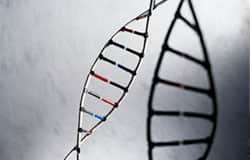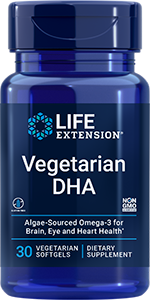| Bacterial infections can be caused by a wide range of bacteria, resulting in mild to life-threatening illnesses (such as bacterial meningitis) that require immediate intervention. In the United States, bacterial infections are a leading cause of death in children and the elderly (Howard BJ et al 1994). Hospitalized patients and those with chronic diseases are at especially high risk of bacterial infection (Murray et al 1998). Common bacterial infections include pneumonia, ear infections, diarrhea, urinary tract infections, and skin disorders. In addition to immune-boosting supplements, a number of nutrients have shown antibacterial activity, especially when it comes to inhibiting bacterial infection. While large-scale human studies have yet to be conducted on many antibacterial nutrients, the existing animal studies show considerable promise with these agents. Before antibiotics, honey was used to treat bacterial wound infections ( Lusby PE et al 2002; Miorin PL et al 2003; Molan PC 2002). Bee propolis has antibacterial and anti-inflammatory properties. In vitro laboratory studies have shown activity against TB, H. pylori, skin ulcers, and colitis (Boyanova L et al 2003; Dobrowolski JW et al 1991; Grange JM et al 1990). Bromelain (a digestive enzyme derived from the pineapple plant) has been used for centuries as a folk remedy for digestive problems and to promote wound healing. It has been proposed as a digestive aid and also has shown immunomodulatory properties (Engwerda CR et al 2001). In animal studies, bromelain has been effective against E. coli by disrupting the bacteria's ability to adhere to the mucosal lining in the digestive wall (Mynott TL et al 1996, 1997). Cranberry juice can be an effective therapy for bacterial urinary tract infections, both to manage infection and to reduce recurrence (Fleet JC 1994; Kontiokari T et al 2001). Cranberry supplements are also available. Oregano oil has been used for centuries in Far Eastern and Middle Eastern cultures to treat respiratory infections, chronic inflammation, urinary tract infections, dysentery, and jaundice. Laboratory studies in which the oil was applied directly to food-borne pathogens showed that oregano oil has strong antibacterial properties (Dadalioglu I et al 2004). Medicinal oregano grows wild in the mountainous areas of Greece and Turkey. It has a high mineral content that enhances its therapeutic benefits, including calcium, magnesium, zinc, iron, potassium, copper, boron, and manganese. This oil is considered safe for humans and may be used in conjunction with antibiotics to fight bacterial infection (Preuss HG et al 2005). | Interactive Life Extension Magazine® April, 2011 issue now online! 
This e-issue of Life Extension Magazine® is extraordinarily easy to use, easy-to-navigate … with the same flip-the-page feeling you get from your printed copy, plus a few extra advantages. You can choose to search out a topic or keyword. Skim quickly. Skip ahead. Even order products. What Europeans are using to restore youthful sleep
Find out how a proprietary nutritional compound widely used in Europe can safely induce relaxation and restful sleep patterns. How insomnia destroys skin health
The good news is there are clinically validated natural interventions that both combat insomnia and restore skin health. New amber exfoliant rejuvenates aging skin
The dermatological procedure known as microdermabrasion ranks among the most popular ways to restore aging skin in the US today. Unfortunately, it’s both expensive and poses some health risks. Criminal quality control lapses at Big Pharma
Egregious manufacturing errors by the world’s largest pharmaceutical manufacturers are being routinely uncovered, yet the public remains largely unaware. Immune senescence partially reversed in human cells
In a landmark study, University of California researchers reversed functional declines in immune cells taken from humans 65 years and older using an analog of the infamous drug thalidomide. How some cancer patients are boosting immune function
Find out what some cancer patients are using to shore up their compromised immune systems. |















